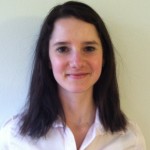by Casey Brown ’14
 Hilary Bernstein, senior in the Economics Department, has interviewed more times than the average Princeton student has celebrated his/her birthday. A pro in the interview, Hilary landed an internship last summer at Bates White, an Economic Consulting firm in DC where she will be working next year. She has a few pointers—and a few words of wisdom—to send your way.
Hilary Bernstein, senior in the Economics Department, has interviewed more times than the average Princeton student has celebrated his/her birthday. A pro in the interview, Hilary landed an internship last summer at Bates White, an Economic Consulting firm in DC where she will be working next year. She has a few pointers—and a few words of wisdom—to send your way.
Casey Brown: Let’s start with the basics. In a nutshell, how do you prepare for the interview?
Hilary Bernstein: You research the company, prepare questions in advance, research the position, go over potential questions the interviewer might ask you. You maybe ask others if anyone knows anything about the company or has worked there and attend info sessions.
CB: What was one of the most difficult things you’ve had to face in an interview and how did you solve it?
HB: Once I was asked a very technical financial-type question, and I really had no idea what the answer was. So I tried to explain my logic and reason to the best that I could.
CB: And what was the outcome?
HB: It wasn’t great. This was a pre-interview, so luckily it didn’t really count for the actual thing. My interviewer coach just said I needed to familiarize myself with these types of questions before going into the interview.
CB: So what are some of the more tricky questions you’ve had to face?
HB: The more technical questions relating to finance in my case. And some of the case studies can get very tricky. The easiest questions for me to answer are personal questions about myself, my resume, my interests, etc.
CB: Do you have any advice for people who might have to answer financial-type questions or case studies?
HB: Practice! Especially with case interviews, practice, practice, practice! It’s good to pair up with a partner. But there’s definitely a methodology and structures that can help you format your thought process. For me preparing for the interviews felt like studying for a test.
CB: What is one of the most positive interview experiences you’d had and why?
HB: I had a fair number of positive interviews. I felt I answered the questions on the ball, was articulate and engaged with the interviewer, we had good chemistry and I felt like I provided genuine and good answers—and I could tell they were interested in what I was saying.
CB: What advice would you give to students to have equally positive experiences?
HB: I’d say prepare in advance and just overall, be talkative, enthusiastic, energetic, and seem excited about the position and what you would bring to the position.
CB: How would you describe the correct tone to have at the interview?
HB: Definitely professional. Don’t use slang terms or make assumptions that your interviewer would know specifics about Princeton, for example. Ask appropriate questions as well. You wouldn’t start by asking, “What’s the starting salary?”
CB: How do you plan for the part where you ask the interviewer questions?
HB: Definitely do research on a company beforehand and try to speak with someone who works there or might know about the industry. Since you’ll likely have multiple rounds with different people, you’ll want to prepare questions that you can ask multiple people without running out. For instance, what is your favorite thing about your job, least favorite thing? What’s your career path? Or, what direction do you see the company moving in the future? So I guess questions that are opinions and subject to personal answers are good because you can ask the same thing to multiple people. Otherwise you might exhaust generic questions about the company with multiple people who will give you the exact same answer.
CB: Any myths about interviewing that you’d like to dispel? Anything you thought going in, and now your mind has changed? Or anything you might hear people saying and think, “that’s not how it is”?
HB: I guess that you have to get it 100 percent. It obviously depends on the company, the industry, and the firm. But you don’t have to think that you have to be 100 percent perfect in the interview.
CB: How do you avoid the nerves?
HB: Just take deep breaths! And try to make yourself comfortable in the interview environment.
CB: So when you go into an interview, what are you thinking? Is there something you tell yourself when you go into it? How do you mentally prep?
HB: Positive self-talk. It’s just like before a big sporting event or a competition, or psyching yourself mentally to take an exam. But I’d just say positive self-confidence and positive self-talk.
CB: What does it feel like when your hard work pays off?
HB: It’s the best thing in the world! If you get the position and if it’s what you wanted, your hard work paid off and it was worth the whole app and interview process!
Thanks, Hilary!
